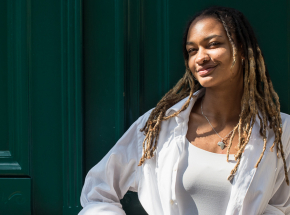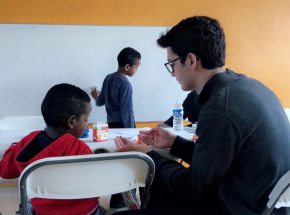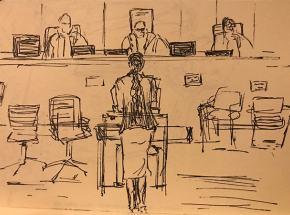- About AUP
- History of AUP
- Mission & Core Values
- Vision and Leadership
- AUP Recognition
- Alumni Success
- Campus Development
- Arts at AUP
- Policies & Guidelines
- Academics
- Undergraduate
- Graduate Programs
- MA in Diplomacy and International Law
- MA in Global Communications
- MSc in Human Rights and Data Science
- MA in International Affairs
- MA in International Affairs, Conflict Resolution, and Civil Society Development
- MSc in International Management
- MSc in Strategic Brand Management
- Find Your Thesis Advisor
- Previous Programs
- Cultural Program
- Faculty
- Summer School
- Research Centers
- The Center for Critical Democracy Studies
- Upcoming Events
- Research Projects
- Fellows’ Publications
- Publishing
- Curriculum
- Community
- Visiting Scholars
- CCDS Highlights
- Atelier de Théorie Politique – Paris
- Critical Theory 101: Future Directions and New Challenges
- Martti Koskenniemi on “The Law of International Society: A Road not Taken”
- Academic Freedom Symposium
- Tocqueville Colloque 2023
- Violent Turns Conference
- Degenerations of Democracy
- DEMOS21 Inaugural Event
- What Demos for the 21st Century?
- The Paris Centennial Conference
- Justice Stephen Breyer
- Civic Jazz - The Launch of the Center
- Past Events
- FR
- The Center for Writers and Translators
- The George and Irina Schaeffer Center for the Study of Genocide, Human Rights and Conflict Prevention
- The Joy and Edward Frieman Environmental Science Center
- The Center for Media, Communication & Global Change
- The Center for Critical Democracy Studies
- Departments
- Academic Resources
- Academic Affairs
- Academic Calendar
- Academic Resource Center
- Library
- Registrar's Office
- Teaching and Learning Center
- Employer Network
- Accessibility & Accommodation Services
- AI@AUP: A Campus-Level Initiative
- Quai D'Orsay Learning Commons
- Paris as Classroom
- ACE Center
- Admissions
- Student Life
- Campus
- Student Leadership & Involvement
- Paris
- Support Services
- Student Development Help Desk
- Student Accounting Services
- Student Immigration Services
- Student Grievance Procedure
- Diversity and Inclusion
- Health & Well-being
- Digital Student Handbook
- News
- Events
- AUP Giving
- Housing Offer for 2025-2026
- IT Services
- Alumni
- About AUP
- History of AUP
- Mission & Core Values
- Vision and Leadership
- AUP Recognition
- Alumni Success
- Campus Development
- Arts at AUP
- Policies & Guidelines
- Academics
- Undergraduate
- Graduate Programs
- MA in Diplomacy and International Law
- MA in Global Communications
- MSc in Human Rights and Data Science
- MA in International Affairs
- MA in International Affairs, Conflict Resolution, and Civil Society Development
- MSc in International Management
- MSc in Strategic Brand Management
- Find Your Thesis Advisor
- Previous Programs
- Cultural Program
- Faculty
- Summer School
- Research Centers
- The Center for Critical Democracy Studies
- Upcoming Events
- Research Projects
- Fellows’ Publications
- Publishing
- Curriculum
- Community
- Visiting Scholars
- CCDS Highlights
- Atelier de Théorie Politique – Paris
- Critical Theory 101: Future Directions and New Challenges
- Martti Koskenniemi on “The Law of International Society: A Road not Taken”
- Academic Freedom Symposium
- Tocqueville Colloque 2023
- Violent Turns Conference
- Degenerations of Democracy
- DEMOS21 Inaugural Event
- What Demos for the 21st Century?
- The Paris Centennial Conference
- Justice Stephen Breyer
- Civic Jazz - The Launch of the Center
- Past Events
- FR
- The Center for Writers and Translators
- The George and Irina Schaeffer Center for the Study of Genocide, Human Rights and Conflict Prevention
- The Joy and Edward Frieman Environmental Science Center
- The Center for Media, Communication & Global Change
- The Center for Critical Democracy Studies
- Departments
- Academic Resources
- Academic Affairs
- Academic Calendar
- Academic Resource Center
- Library
- Registrar's Office
- Teaching and Learning Center
- Employer Network
- Accessibility & Accommodation Services
- AI@AUP: A Campus-Level Initiative
- Quai D'Orsay Learning Commons
- Paris as Classroom
- ACE Center
- Admissions
- Student Life
- Campus
- Student Leadership & Involvement
- Paris
- Support Services
- Student Development Help Desk
- Student Accounting Services
- Student Immigration Services
- Student Grievance Procedure
- Diversity and Inclusion
- Health & Well-being
- Digital Student Handbook
- News
- Events
- AUP Giving
- Housing Offer for 2025-2026
- IT Services
- Alumni
Alumni
Zachary Egan ’22
Embraces Diverse Interests to Design his Path Toward a Career at the International Energy Agency (IEA)
Born in Lithuania and raised in the United States, Zachary Egan ’22 came to AUP following a gap year after high school. Initially drawn to Paris for a summer program, he quickly found himself captivated by the city’s history and culture. Given his curiosity and array of interests, from history and art history to politics and geography, he was immediately drawn to the flexible and globally-minded liberal arts education that AUP offers. Entering as a history major, he immediately changed majors to AUP’s interdisciplinary Bachelor’s in History, Law and Society after meeting with the department’s faculty who recognized his interdisciplinary interests, which allowed him to pursue all the fields that interested him—a choice he believes prepared him well for his current role in the Communications Office at the International Energy Agency (IEA) in Paris.
During his time at AUP, Egan took full advantage of opportunities beyond the classroom, serving as Judiciary Chair to review and amend the University’s constitution from a student perspective, and later becoming Undergraduate Vice President, where he led the Senate, coordinated meetings and facilitated dialogue between students and the administration. He recognizes that these leadership experiences sharpened his organizational and communications skills, which helped him become a better team player in his career in an international organization such as the IEA. “These experiences were fundamental to making me comfortable in leadership roles,” he explains, highlighting his ease with public speaking and addressing all IEA staff, diplomats and ministers etc. “This is so essential to my job now, but it was really Student Senate that empowered me to hone in on those skills,” he adds.
Similarly, the diverse and multicultural student body at AUP made for a fantastic learning environment where exchange through discussion, debate and teamwork reigned; and where coursework was bridged directly with the city. “One of my favorite courses at AUP was the art history course “The Gothic Cathedral” with Professor Anna Russakoff, which included study trips to Chartres and Rouen,” he recalls. Egan, who spent many hours sitting by Notre-Dame between classes, found that studying in a city so rich with history broadened his analytical perspective, allowing him to approach complex texts and policy issues with a deeper sense of context. He appreciated the close-knit environment of the classrooms and the interactive law courses, including mock trials, which further reinforced his ability to think critically and engage in legal and policy discussions.
As he approached graduation, Egan yet again expanded his interests into the global geopolitics, trade and economics thanks to a course he took with Professor Peter Haegel, Global Political Economy. This, combined with an alumni mentorship at the Organisation for Economic Co-operation and Development (OECD), helped him secure an internship at the IEA, during the Fall semester of his senior year. The internship soon turned into a full-time position in the Communications Division where he continues to make a name for himself.
Egan joined the organization in 2021, and by 2022, he found himself working at the Agency during a pivotal, and fascinating, moment in history due to the European energy crisis, post-COVID response and other conflicts causing energy market tensions. Working at the IEA has taught him a great deal about the intricate world of energy policy. As he progresses in his career, his understanding of bigger picture has given rise to a sincere desire to make a difference in the field, with a particular focus on access to reliable and affordable energy. “Energy affects every aspect of your life,” he says. “Energy touches everything.”
As he continues to gain professional experience, Egan has also begun a part-time master’s program in Energy Policy at the University of Sussex. His goal is to transition into the role of a policy analyst in order to further research on sustainable and equitable energy solutions. He is also a member of the Secretariat of the European Youth Energy Network, an EU-based, youth led organization dedicated to integrating youth voices into the fair and sustainable energy transition in Europe.
Building on his expert understanding of energy policy today, Egan is now passing on his knowledge to others, in particular when it comes to issues such as the potential role of AI in energy, energy security and clean cooking. He has helped organize high-level events where global energy ministers and leaders convene and he has introduced several student-focused initiatives. At a recent event he organized, 70 students from across France came together to pitch their ideas and workshop them with the IEA expert audience.
Looking back on his own time as a student, Egan sees strong parallels between AUP and the IEA, both being highly international environments that foster cross-disciplinary discussions. “At AUP, there were people with so many different interests. The IEA is similar,” he says. “AUP was definitely the right place for me,” he adds, pointing to his education as the foundation upon which he built a meaningful career.
Even after six years in Paris, he still enjoys walking through the streets, discovering new places and reflecting on his journey. Though, these days, he may also find himself thinking a bit more about the streetlights and how much energy they consume.
Related
-

Basia-Marie Diagne
Paris as Classroom
Read MoreBasia-Marie Diagne
Paris as Classroom
My relationship with the team remains strong.
-

Campus UNICEF
Paris as Classroom
Read MoreCampus UNICEF
Paris as Classroom
The club organizes regular volunteering opportunities for students in Paris.
-

Terror Trials
Paris as Classroom
Read MoreTerror Trials
Paris as Classroom
“I have found myself applying the theory I encountered in class in real-life scenarios,” says Stephanie Bergon, undergrad.



